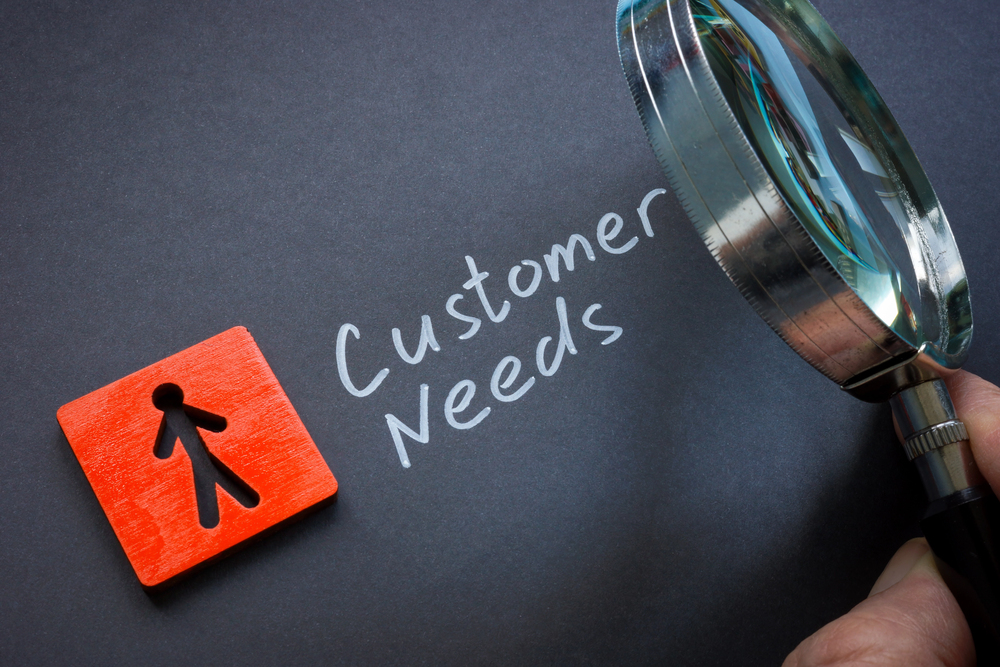How The Art Of Listening Will Help You Grow Your Business
26 Jul 2019
“Wisdom is the reward you get for a lifetime of listening when you’d have preferred to talk.” – Doug Larson
Listening and talking it seems is a dying art. A moribund form of communication, superseded by emails, text and tweets etc. both in a private and professional environment.
I am from a generation brought up sitting round the kitchen table and talking. Yes, as a child, adult conversation was not as enthralling as the next episode of Grange Hill or piloting the Millennium Falcon, but it felt important and taught us the art of talking, listening and the enjoyment of interacting with other people.
My daughter is just about to go to secondary school. She will need to catch the train so we have succumbed and bought her a phone for emergencies. All her friends have them, but as yet (3 months into the contract), not a single phone call has been made. Every communication made via text. Not a single call!
“Friends are those rare people who ask how we are, and then wait to hear the answer.” – Ed Cunningham
I appreciated the story back in March of a Samuel Smiths pub banning mobile phones. This week, it was announced that the pub shut its doors at the flouting of these rules. A touch Draconian maybe and phones can be considered a necessity in the modern world, but I get it. Pubs are social spaces. An environment to unwind with friends and family and catch up. Why spend it texting or checking social media?
“One of the most sincere forms of respect is actually listening to what another has to say.” -Bryant H. McGill
In a professional environment, I believe listening and talking to be crucial. Email strings can be hugely time consuming to review and respond to. I remain convinced as a company owner that productivity is reduced by certain communication channels rather than enhanced. This is backed up by statistics from Dynamic Signal:
- The average worker spends 13 hours a week on emails alone (c.32% of a working week)
- 96% of workers said that unnecessary emails waste their time
But crucially,
- 86% of corporate executives, employees and educators say that ineffectual communications is a big reason for failures in the workplace
- 67% of executives and managers say productivity would increase if superiors communicated face-to-face
“If you make listening and observation your occupation, you will gain much more than you can by talk.” – Robert Baden-Powell
Apps and texting do give you an element of control and there is time to think if a tricky question comes through by email rather than being put on the spot. However, agility and adaptability are life skills and should be encouraged as opposed to a culture of hiding behind email.
Life is full of tricky conversations and interactions and at some point you will need to be able to handle these. It may be as simple as saying you’ll get back to someone on a certain question or issue. A wise old sage in my early career told me that you should “always swallow the big ugly frog first”. That meant pick the phone up and deal with the nasty issues or challenges that needed to be faced rather than composing an email, hitting send and ducking behind the parapet. This approach meant issues were resolved in less than half the time.
However, what is the real reason we don’t talk as much as we should? I believe it is because we don’t listen anymore. The most crucial part of communication (and business development if that is what you are into).
“When people talk, listen completely. Most people never listen.” – Ernest Hemingway
If we don’t listen, we don’t know what the other party wants, be that at home or at work. Clearly this will lead to discord. I am sure we are all guilty of tuning out or not focusing fully on what someone is saying, but ultimately, it is a basic courtesy. Language, words, tone are powerful tools and what sets us apart as intelligent beings.
Barriers to effective listening are abundant in our current world. Screens, emails, texts, radios, other people, but if you want someone to listen to you, you must afford them the same basic courtesy.
Have you ever been in a meeting where one party has a laptop on the table or a phone in their hand that buzzes and draws the inevitable shift of the head and eyes to check the text? That is undermining the basic human courtesy of listening.
“You cannot truly listen to anyone and do anything else at the same time.” – M. Scott Peck
Listening to someone on the phone is critical if you want to cut it in new business. You must focus on the other party and not get pulled by the multitude of potential distractions around you. Over the phone the other party can’t see you, so the temptation to check an email, nod to a colleague to make a cup of tea, quickly check the cricket or Wimbledon scores is ever present.
You must focus on the other party and what they are saying. This does not mean you can’t interject, but it does mean you will be interjecting with relevant points and questions, which in turn makes that person feel valued and important. They know you are listening.
It’s not all about you, not when you are trying to win new business, or not yet anyway. I firmly believe you can’t pitch one single part of your service or offer unless you have listened to the challenges, and goals of any potential client.
Listening allows you to pick up on verbal cues (and non-verbal in a face-to-face environment), match your services to requirements, offer genuine help and advice and will put you a step ahead of the competition.
Talking remains a critical tool for communication and certainly for new business generation. Ultimately, it is proper human interaction with no encrypted messages. Would you respond to an email stating what someone can do for you, or would you prefer a conversation to discuss what youactually need? It’s not rocket science, but it is important.
This article first appeared on the Alchemis website.





Please login to comment.
Comments